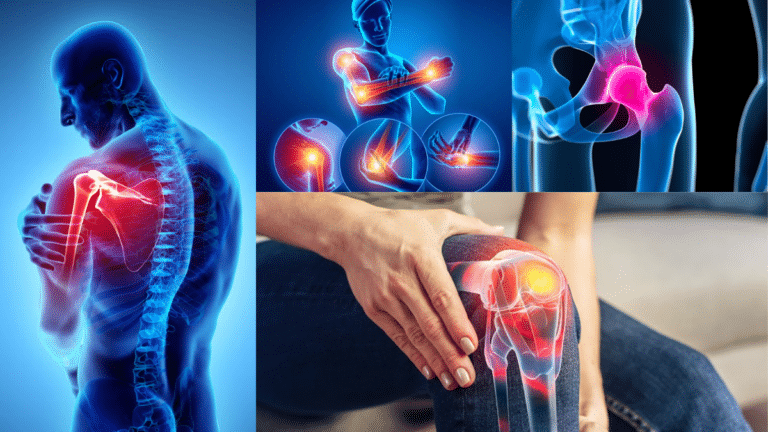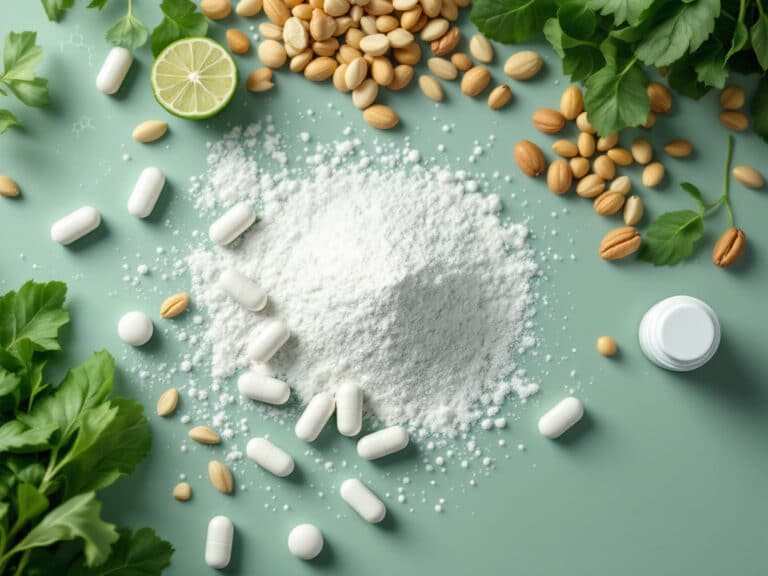Fat burners are among the most popular supplements on the market for people looking to shed extra weight. With promises of faster fat loss, improved energy, and a more sculpted physique, it’s no surprise they attract a lot of attention. However, the effectiveness of these products often comes into question. So, Do Fat Burners Really Work? Can fat burners actually help you lose weight, or are they just another overhyped product in the wellness industry?
This post will explore what fat burners are, how they claim to work, and whether there’s real evidence to support their use. By the end, you’ll have a clear understanding of whether fat burners are worth considering for your fitness goals.
What Are Fat Burners?
Fat burners are dietary supplements designed to help people lose weight by enhancing fat metabolism, reducing appetite, or increasing energy levels. They typically come in the form of pills, powders, or drinks and are marketed as a convenient way to accelerate weight loss efforts.
Most fat burners contain a mix of ingredients believed to support fat loss. Common components include caffeine, which boosts energy and metabolism; green tea extract, known for its fat-burning properties; and L-carnitine, an amino acid that may help transport fatty acids for energy use. Other popular ingredients include capsaicin (from chili peppers) to increase thermogenesis and Garcinia cambogia to suppress appetite.
Fat burners are often categorized by how they work. Thermogenic fat burners increase your body’s heat production to burn more calories. Appetite suppressants help reduce cravings and calorie intake. Some products, like carb blockers, aim to prevent the absorption of carbohydrates during digestion. Despite these claims, not all fat burners are backed by strong scientific evidence, and their effectiveness can vary widely depending on the ingredients and the individual using them.

How Fat Burners Are Supposed to Work
Fat burners are marketed as tools to help your body lose fat more efficiently. They typically target key processes involved in fat loss, such as metabolism, energy expenditure, and appetite control. Here’s a closer look at how they claim to work:
- Boosting Metabolism
Many fat burners contain thermogenic ingredients like caffeine, green tea extract, or capsaicin. These compounds aim to raise your body’s metabolic rate, increasing the number of calories you burn throughout the day—even while at rest. The idea is that a higher metabolism helps your body use stored fat as an energy source more effectively. - Enhancing Energy Levels
Fat burners often include stimulants like caffeine, which can increase energy and alertness. This boost may help you work harder during exercise, potentially burning more calories and supporting your fat loss goals. - Suppressing Appetite
Some fat burners contain ingredients like Garcinia cambogia, glucomannan, or 5-HTP, which are believed to help reduce hunger or cravings. By eating fewer calories, you create a calorie deficit—a key factor for losing weight. - Improving Fat Utilization
Ingredients like L-carnitine and conjugated linoleic acid (CLA) are thought to help your body transport and utilize fatty acids more efficiently, converting them into energy instead of storing them.
While these mechanisms sound promising, the results vary from person to person. Fat burners may provide small, temporary benefits, but they are not a substitute for the foundational elements of weight loss: a balanced diet and regular exercise.
Scientific Evidence: Do Fat Burners Actually Work?
The effectiveness of fat burners depends largely on their ingredients, but the scientific evidence supporting their claims is often limited or mixed. While some components have shown potential benefits, many fat burners rely on exaggerated marketing rather than robust research.
- Ingredients with Some Backing
- Caffeine: Research suggests caffeine can slightly boost metabolism and enhance fat oxidation during exercise. It may also improve energy levels, helping individuals maintain physical activity. However, the effects are modest and may diminish with regular use.
- Green Tea Extract: This ingredient contains catechins, which may support fat burning by increasing energy expenditure and fat oxidation. Studies indicate green tea extract can have a small positive impact on weight loss, especially when combined with exercise.
- Protein and Fiber Additives: Some fat burners use glucomannan or other fibers to promote satiety, which can help reduce calorie intake. While effective for curbing hunger, these results are not unique to fat burners and can be achieved through a balanced diet.
- Ingredients with Minimal or No Evidence
- Garcinia Cambogia: Although widely marketed as a powerful appetite suppressant, most studies find little to no significant impact on weight loss.
- L-Carnitine: While it plays a role in fat metabolism, research shows it has limited effects on fat loss in healthy individuals.
- CLA (Conjugated Linoleic Acid): Though promising in animal studies, human trials yield inconsistent results, with only minor weight loss effects in some cases.
- The Bigger Picture
While some ingredients may provide small benefits, they are rarely enough to make a noticeable difference in weight loss. Most studies show that even effective fat burners contribute only a marginal increase in fat loss when combined with diet and exercise. They are far from a “magic pill” and cannot replace the fundamentals of calorie control and physical activity.
In conclusion, while fat burners may offer minor support, their effectiveness is often overstated. Relying solely on these supplements is unlikely to deliver significant or sustainable results.

The Role of Lifestyle in Fat Loss
Fat burners are often marketed as quick and easy solutions for weight loss, but the reality is that they can only play a small role in the bigger picture. Sustainable fat loss depends on maintaining healthy lifestyle habits, which form the foundation for achieving long-term results.
- The Importance of a Balanced Diet
No supplement can compensate for poor eating habits. To lose fat, you need to create a calorie deficit, meaning you consume fewer calories than your body burns. A diet rich in whole foods, such as lean proteins, fruits, vegetables, whole grains, and healthy fats, is key to supporting weight loss and overall health. Fat burners may help suppress appetite or increase metabolism slightly, but they cannot replace the role of nutritious food in maintaining a healthy calorie balance. - The Role of Exercise
Physical activity is another critical factor in fat loss. Cardio workouts, strength training, and even daily movement like walking all contribute to burning calories and building muscle. Fat burners that promise to boost energy or enhance workout performance can complement your efforts, but they are not a substitute for consistent exercise. Relying solely on supplements without an active lifestyle will yield limited results. - Consistency is Key
Fat burners might provide a temporary boost, but their effects are only noticeable when paired with consistent healthy habits. Skipping workouts or overeating cannot be undone by taking a pill or powder. True progress comes from sticking to a well-rounded routine over time.
Ultimately, fat burners should be viewed as a small part of a comprehensive fat loss plan. When combined with a healthy diet and regular exercise, they might provide some additional support, but they are far from essential. Focusing on building sustainable habits will lead to more meaningful and lasting results.
Potential Risks and Side Effects
While fat burners are widely available, they are not without risks. Many products contain stimulants or other ingredients that can cause adverse effects, especially when misused or taken in excess. It’s important to understand the potential downsides before incorporating fat burners into your routine.
- Common Side Effects
- Jitters and Anxiety: High doses of caffeine or other stimulants can lead to nervousness, restlessness, or feelings of anxiety.
- Increased Heart Rate and Blood Pressure: Stimulants may also cause a rapid heart rate or elevated blood pressure, which can be dangerous for individuals with pre-existing conditions.
- Digestive Issues: Ingredients like capsaicin or certain fibers can lead to stomach discomfort, bloating, or diarrhea.
- Sleep Disruption: Fat burners taken later in the day, especially those with caffeine, can interfere with sleep patterns and lead to insomnia.
- More Serious Risks
- Dependence on Stimulants: Regular use of stimulant-based fat burners can lead to tolerance, requiring higher doses to achieve the same effects. This increases the risk of side effects and dependency.
- Heart Problems: Excessive use of fat burners, particularly those with strong stimulants, has been linked to heart palpitations, arrhythmias, and in rare cases, cardiac arrest.
- Unregulated Ingredients: Dietary supplements, including fat burners, are not always well-regulated. Some products may contain undisclosed or harmful substances, posing additional risks to users.
- Precautions to Take
- Always check the label and research the ingredients of any fat burner you consider using.
- Start with the lowest recommended dose to assess your body’s tolerance.
- Avoid using fat burners if you have a history of heart conditions, high blood pressure, or anxiety disorders.
- Consult a healthcare professional before starting any supplement, especially if you are on medication or have pre-existing health conditions.
Although fat burners may seem appealing, their potential risks often outweigh their benefits for many individuals. Always prioritize safety and consider whether other, more natural approaches to weight loss might be a better fit for your goals.

Who Might Benefit from Fat Burners?
Fat burners are not for everyone, but there are specific situations where they might provide some benefit. For the right individuals, these supplements can serve as a minor tool to enhance their efforts, but only when used responsibly and combined with a healthy lifestyle.
- Individuals Already Leading a Healthy Lifestyle
People who already follow a balanced diet and exercise regularly may find fat burners helpful as a small boost to their efforts. For example, thermogenic ingredients like caffeine or green tea extract could increase calorie burn during workouts or help improve focus and energy levels. However, the impact is typically modest, so these products are most effective when used as a supplement to an already disciplined routine. - Athletes and Fitness Enthusiasts
Fat burners can provide a slight edge for those looking to achieve specific fitness goals, such as cutting body fat for a competition or improving workout performance. Ingredients like caffeine can improve endurance and focus, making them appealing to athletes or those engaging in high-intensity training. It’s important to note, though, that results still depend on consistent effort in the gym and proper nutrition. - Short-Term Assistance for Weight Loss Goals
Some individuals might use fat burners as a temporary aid during a weight loss plateau or to manage occasional appetite control. For example, appetite suppressants could help reduce cravings when adjusting to a calorie deficit. However, this approach should be short-term, as relying on supplements instead of addressing long-term habits can hinder sustainable progress.
Who Should Avoid Fat Burners?
Fat burners are not suitable for everyone. Pregnant or breastfeeding women, individuals with heart conditions, anxiety disorders, or those sensitive to stimulants should avoid these products altogether. Additionally, beginners who are not yet consistent with diet and exercise will see little to no benefit from fat burners.
In summary, fat burners might be useful for certain individuals, but they are not a universal solution. For most people, focusing on a sustainable approach to weight loss through nutrition and exercise will yield better and longer-lasting results.
Myths and Misconceptions About Fat Burners
Fat burners are surrounded by myths and misconceptions, often fueled by bold marketing claims. Understanding the reality behind these myths can help you make informed decisions about whether these supplements are worth considering.
- Myth: Fat Burners Melt Fat Without Effort
One of the most common misconceptions is that fat burners can magically melt away fat without the need for exercise or dietary changes. This simply isn’t true. Fat burners can slightly enhance fat loss, but only when combined with a calorie deficit and regular physical activity. They are not a substitute for hard work or a healthy lifestyle. - Myth: The More You Take, the Better the Results
Some people believe that doubling or tripling the recommended dose of a fat burner will speed up weight loss. In reality, taking excessive amounts can increase the risk of side effects, such as jitteriness, heart palpitations, or digestive issues, without providing additional benefits. Following the recommended dosage is crucial for safety and effectiveness. - Myth: All Fat Burners Are Backed by Science
Many fat burners claim to have scientific support, but in reality, not all ingredients are backed by solid research. While some, like caffeine and green tea extract, have shown modest benefits, others rely on anecdotal evidence or outdated studies. Always research the ingredients in any fat burner you’re considering and look for products with transparent labeling. - Myth: Fat Burners Work the Same for Everyone
Individual results can vary greatly depending on factors such as metabolism, diet, exercise routine, and overall health. What works for one person might not work for another, making it important to manage expectations and consider how your body responds. - Myth: Fat Burners Are Safe for Everyone
Despite being marketed as safe and effective, fat burners can pose risks, especially for individuals with underlying health conditions or those sensitive to stimulants. Misconceptions about their safety can lead to misuse and potential health problems.
By separating fact from fiction, it’s clear that fat burners are not the miracle solutions they’re often advertised to be. While they may offer minor support for weight loss, they should never be relied on as the sole method for achieving your fitness goals.

Are Fat Burners Worth It?
Deciding whether fat burners are worth it depends on your goals, expectations, and overall approach to weight loss. While they may offer some benefits, they are far from a guaranteed solution and should be viewed critically.
- The Pros
- Small Boost to Metabolism: Certain ingredients, such as caffeine and green tea extract, may provide a slight increase in calorie burning.
- Increased Energy: Fat burners containing stimulants can help you feel more energetic, which may improve workout performance.
- Appetite Control: Some ingredients, like glucomannan, may help curb cravings and reduce calorie intake.
- The Cons
- Minimal Impact: The effects of fat burners are often small and might not make a noticeable difference in your weight loss journey.
- Potential Side Effects: Many fat burners come with risks, including jitters, digestive issues, and sleep disruptions.
- Cost: Fat burners can be expensive, and the results they offer may not justify the price.
- Dependency Risks: Over-relying on supplements can distract from addressing the long-term habits that are essential for sustainable fat loss.
- Alternatives to Fat Burners
- Focus on Diet: Building a calorie deficit through healthy eating is more effective than relying on supplements.
- Exercise Consistently: Regular physical activity burns calories and improves overall health without the risks associated with fat burners.
- Prioritize Sleep and Stress Management: Poor sleep and high stress can hinder weight loss, so addressing these areas can yield better results than supplements.
For most people, fat burners are not essential for weight loss and may not be worth the investment. While they can provide a small boost, they work best when paired with a solid diet and exercise routine. Before considering fat burners, evaluate whether your existing habits are optimized for your goals. If not, focus on those areas first—they will have a far greater impact on your success than any supplement ever could
Final Thoughts
Fat burners are often marketed as quick fixes for weight loss, but their actual effectiveness is limited. While certain ingredients, like caffeine and green tea extract, have some scientific backing, the results are usually modest and only noticeable when combined with a solid diet and exercise routine. These supplements are not a replacement for the foundational habits necessary for sustainable fat loss.
Additionally, fat burners come with potential risks, including side effects like jitters, digestive discomfort, and sleep disruption. They also vary widely in quality, with many products containing unproven or unregulated ingredients. This makes it crucial to research products thoroughly and consult with a healthcare professional before using them.
Ultimately, fat burners might offer a small boost for those already leading a healthy lifestyle, but they are far from a necessity. Focusing on a balanced diet, consistent exercise, and other sustainable habits will yield better results over the long term. If you do choose to use fat burners, approach them as a supplementary tool, not a primary solution, and always prioritize your safety and well-being.
Frequently Asked Questions About Fat Burners
What are fat burners?
Fat burners are dietary supplements designed to help with weight loss by boosting metabolism, increasing energy, or suppressing appetite. They are often made with ingredients like caffeine, green tea extract, and capsaicin.
Do fat burners really work?
Fat burners can provide a slight boost to metabolism and energy levels, but their overall impact on weight loss is minimal. They are most effective when combined with a healthy diet and regular exercise.
Are fat burners safe to use?
Fat burners can cause side effects, including jitteriness, increased heart rate, digestive issues, and sleep disruptions. It’s important to research ingredients and consult a healthcare professional before using them, especially if you have underlying health conditions.
Can fat burners replace diet and exercise?
No. Fat burners are not a substitute for a healthy diet and regular exercise. They work best as a supplementary tool to enhance an already healthy lifestyle.
Who should avoid using fat burners?
People with heart conditions, high blood pressure, anxiety disorders, or those sensitive to stimulants should avoid fat burners. Pregnant or breastfeeding women should also refrain from using them.
What are the common side effects of fat burners?
Side effects can include jitteriness, restlessness, increased heart rate, digestive discomfort, and sleep issues. Overuse or misuse can increase these risks.
Are all fat burners backed by science?
No. While some ingredients, like caffeine and green tea extract, have scientific support, many fat burners rely on unproven ingredients or exaggerated claims.
How should I use fat burners?
Always follow the manufacturer’s recommended dosage. Start with the lowest dose to assess tolerance, and never rely solely on fat burners for weight loss.
Are fat burners worth the money?
Fat burners can offer small benefits, but they are not essential for weight loss. Their effectiveness varies, and the results may not justify the cost for everyone.
What are alternatives to fat burners?
Focus on a balanced diet, regular exercise, adequate sleep, and stress management. These approaches are more effective and sustainable for weight loss than relying on supplements.
References
- WebMD. (n.d.). What are fat burner supplements? Retrieved January 20, 2025, from https://www.webmd.com/vitamins-and-supplements/what-are-fat-burner-supplements
- Cleveland Clinic. (n.d.). Do fat burners work? Retrieved January 20, 2025, from https://health.clevelandclinic.org/do-fat-burners-work
- American Academy of Family Physicians. (2004). Herbal and dietary supplement use in weight loss. American Family Physician, 70(9), 1731-1738. Retrieved from https://www.aafp.org/pubs/afp/issues/2004/1101/p1731.html
- Ziegenfuss, T. N., et al. (2016). International Society of Sports Nutrition position stand: Safety and efficacy of dietary supplements for exercise, weight loss, and health enhancement. Journal of the International Society of Sports Nutrition, 13(14). https://doi.org/10.1186/s12970-016-0123-1
- WebMD. (n.d.). The truth about weight loss pills. Retrieved January 20, 2025, from https://www.webmd.com/obesity/features/truth-about-weight-loss-pills
- Houston Methodist. (2023). Do weight loss pills work? 5 more questions answered. Retrieved January 20, 2025, from https://www.houstonmethodist.org/blog/articles/2023/feb/do-weight-loss-pills-work-5-more-questions-answered/
- Prevention. (n.d.). Do fat-burning supplements work? Retrieved January 20, 2025, from https://www.prevention.com/weight-loss/a60861703/do-fat-burning-supplements-work/
- Mayo Clinic. (n.d.). Weight loss: Choosing a diet that’s right for you. Retrieved January 20, 2025, from https://www.mayoclinic.org/healthy-lifestyle/weight-loss/in-depth/weight-loss/art-20046409
- National Institutes of Health. (n.d.). Dietary supplements for weight loss. Retrieved January 20, 2025, from https://ods.od.nih.gov/factsheets/WeightLoss-HealthProfessional/







